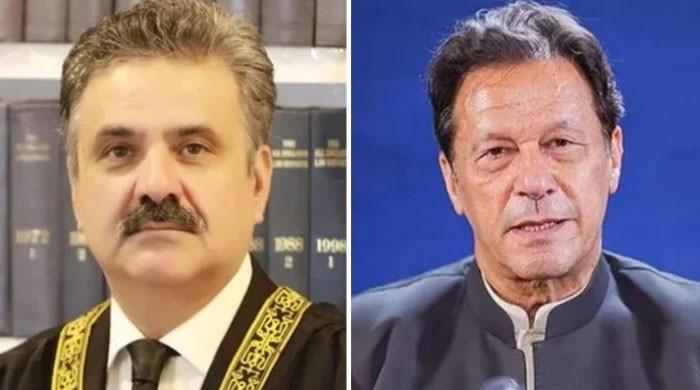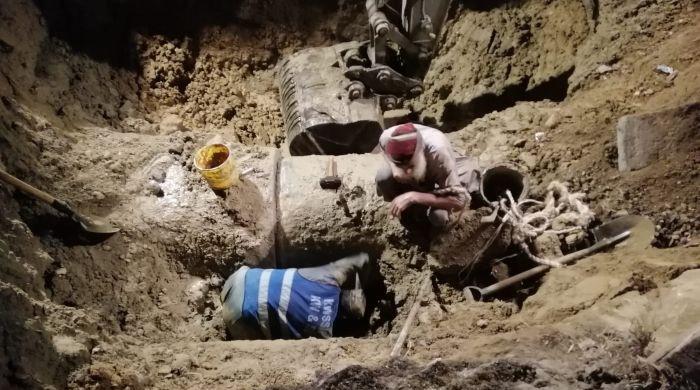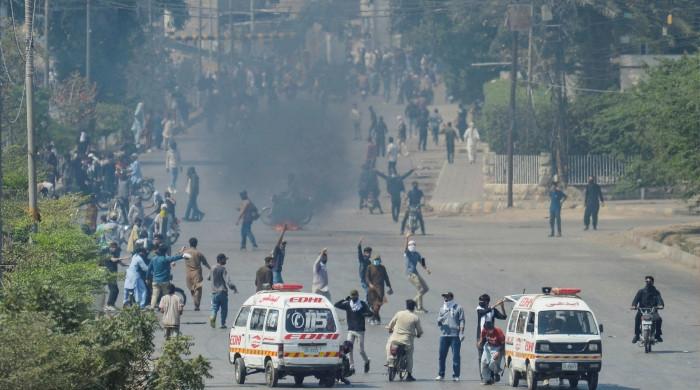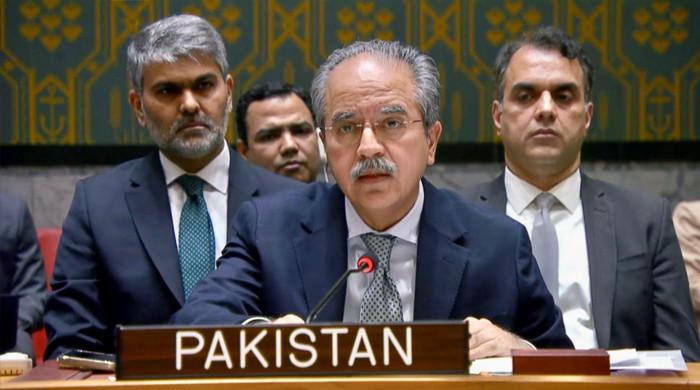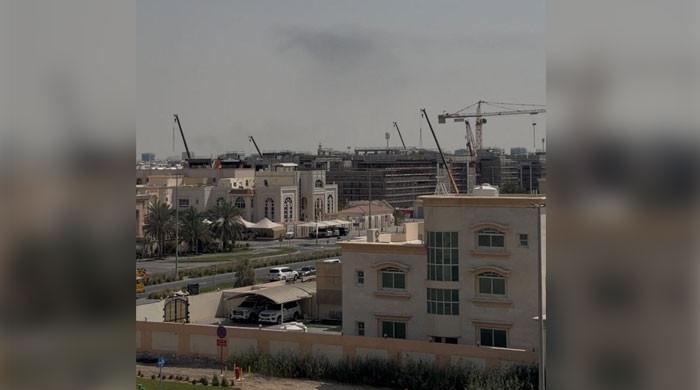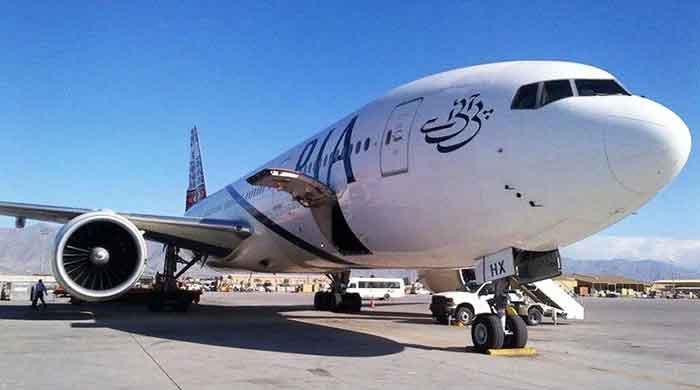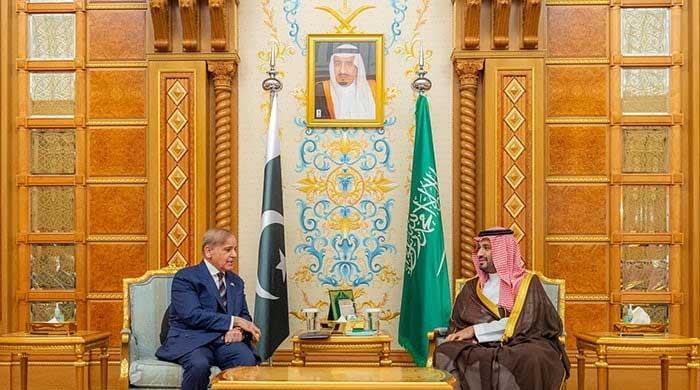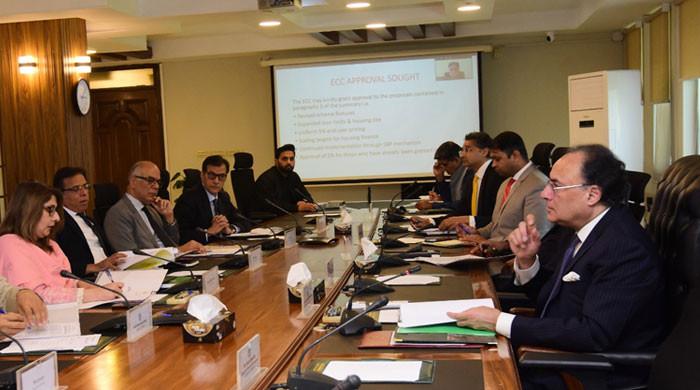EXCLUSIVE: ‘I am not a traditional politician’
Exclusive interview with Governor Sindh Mohammad Zubair
March 20, 2017
Mohammad Zubair Umar, the 32nd Governor of Sindh, speaks to Geo.TV about his first month in office and the challenges that come with the new position.
You officially entered politics in 2012. Five years later, you are appointed the governor of Sindh, a job many had been vying for.
They say you have to be at the right place at the right time. A lot of it has to do with my luck, well, good luck. But then there are also the basics, which you must get right, such as, keep your head cool and continue to work hard. I think it is great that people from my background are finally coming into politics. There are not very many professions who choose this field. I think that was my advantage. I am not a traditional politician.
One speculation is that your brother cleared the way for you, to join the Pakistan Muslim League-Nawaz, after he left it for another political party. Any truth in this?
No, that is not true. Before April 2012, I had no intention of entering the field. I didn’t know any members of the PML-N. The first time I met Mr Shehbaz Sharif was at dinner a few years back. At that time I was working as a consultant. Over dinner, he asked me my opinion on how the PML-N should manage their media. A few months later I made a presentation. He liked it. Next, I met Mr Nawaz Sharif. And within three days I was part of a committee tasked to make the economic manifesto for the party. It all moved very quickly.
Walk us through the day you were informed that you will be the next governor of Sindh. Many, reportedly, had lobbied for the position. Why do you think you were chosen?
Some did lobby. But I did not. Many people believe that if you don’t ask for it you won’t get it. My relatives had been urging me to ask the Prime Minister for a responsibility after the 2013 national elections. But I shied away from it. I know, now, how the Prime Minister makes his decisions. In hindsight, the previous appointment for governor was not the right one, keeping his health in mind. The Prime Minister was misled into it. So while the decision was still up in the air, I did my own assessment. Who are the stakeholders in Sindh? The Pakistan Peoples Party, the Muttahida Qaumi Movement, the business community, the nationalist parties and the army, who are involved in an operation in the province. I thought the MQM and the military would be pretty comfortable with me. I can work with everyone. I have friends in the MQM and the PPP and I have a lot of respect for the military.
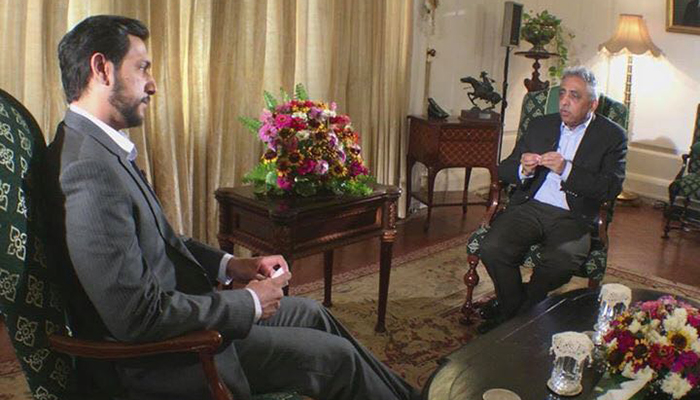
"I want to lead economic initiatives for the city (Karachi)"
What would be the focus of your tenure?
The position of governor in Sindh is not a ceremonial one. There is an operation ongoing to control the law and order situation. Karachi is Pakistan’s financial hub. I want to lead economic initiatives for the city. In my first month in office, I went to Dubai to showcase why Karachi is the best destination in the region to invest.
Over 30 days in office, what are some of the political and bureaucratic challenges that you face?
It is not an easy job. The most important people are the people of Sindh. That is what I keep telling the stakeholders. If the local government can build the capacity to provide good service to the people of Sindh, I would be the first one to hand it over to them. In my opinion, competence is a bigger issue in Pakistan than corruption. If you don’t have competence, you will not be able to stop corruption. Our bureaucracy, as well as the political class that forms the government, does not have that capacity to deliver. That is why it is best that it is left to the experts, whether in regards to the Pakistan International Airlines or the Pakistan Steels Mills.
Crime in Karachi is said to have dropped by 80 percent due to the Ranger-led operation.
Let me correct you here. It is a federal government-led operation. In fact, its blueprints were conceived before the 2013 elections as part of the PML-N’s economic vision. We believed that Pakistan’s economic turnaround could only be achieved after we fix Karachi. There is no other way.
The first meeting the PML-N held after forming the government, in July 2013, was to discuss Karachi. During which we decided that the Rangers are needed in the province, with additional powers. In the second meeting in September, all political parties were present. They agreed, unanimously, that the first step would be to launch a joint police and Ranger’s operation. In fact, Shahid Hayat would oversee it. This is the best thing to happen in Pakistan in the last few years. Listen, all stakeholders were there prior to June 2013 as well, hence, the Rangers, the military, the PPP, the MQM. What was holding them back from initiating an operation? I think Prime Minister Nawaz Sharif made all the difference.
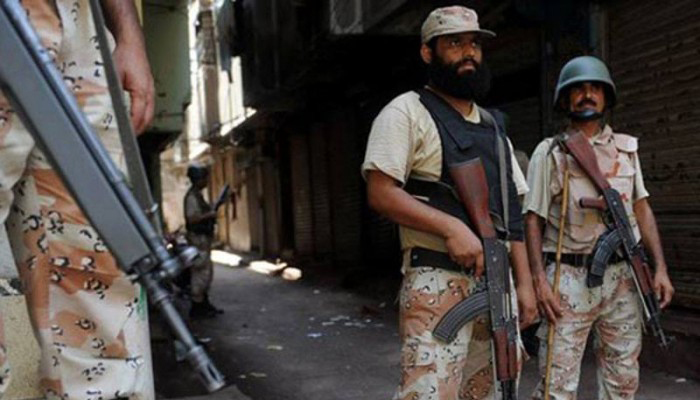
"There is a gap between the capacity of the Rangers and the police, which will take time to fill"
The Inspector General Police Sindh, AD Khawaja, recently said Karachi cannot continue to rely on the Rangers as “crutches,” and the police are still functioning under laws from the 1800s. Would you agree with his statement?
Karachi needs to build the capacity of its police force. Since the police are responsible for maintaining law and order in the long run. This operation is a short-term solution, which is why it is causing friction. Let’s not forget that Pakistan is still a third world country. Although, it has recently added 80 percent more to its federal tax revenue. Yet, we are constrained as far as financial resources are concerned. Admittedly, there is a gap between the capacity of the Rangers and the police, which will take time to fill. Police officers should be respected and paid handsomely. This can be ensured if we keep adding more to the federal taxes. Now, as per the National Finance Commission award, 60 percent of the federal revenue goes to the provinces, which in turn should be spent on health and education. So the provinces are already getting much more than they were two or three years ago.
How does the paramilitary operation in Sindh differ from that in Punjab?
It’s very different. The very nature of the problem is different. Never has Lahore been equated with Karachi in terms of the seriousness of law and order. No one has referred to Lahore as a trouble spot or a dangerous city. No one is taking his or her business out of Lahore. Therefore the powers allocated to the paramilitary in both provinces are also different. No one can dare shut down Lahore.
Last week, China’s ambassador to Pakistan said that projects under the China-Pakistan Economic Corridor (CPEC) have already created over 13,000 jobs in Pakistan. How many employment opportunities have been generated in Sindh alone?
The CPEC is a national project. We should not try to make it about Sindh or Karachi. Out of the original $46 billion that will flow in, $34 billion is earmarked for the power sector and the maximum of these projects are in Sindh. It makes sense to have them here as well. If you are going to use the Thar coal, you should set up a plant near it. It makes sense to have the wind power project in Sindh, because of the particular [weather] conditions here. Also, the railway projects, roads, pipelines will be running through all the provinces of Pakistan. Ultimately, it will benefit everyone. It will benefit Balochistan more than others. There will be enormous job opportunities that will be created.

"CPEC is a national project. We should not try to make it about Sindh or Karachi"
Shortly after your appointment, you said that the circular railway project has been included in the CPEC and work on the green and orange line mass transit is ongoing. When will both projects be up and running?
There are several projects that are federally funded, including the mass transit one. The green line project will be completed by the end of this year. It will be the most modern transportation system that Karachi has seen. While Karachi’s circular railway project is now part of the CPEC, in terms that the Chinese have given us a general go-ahead, but we have to go back to them with a feasibility report. We are now targeting projects that have been languishing for decades now. Hopefully, the railway project can be initiated by the end of this year.
Karachi has another problem. It is starved for water. Is anything being done?
Absolutely. Now, this is a responsibility of the provincial government. Karachi has a serious water supply issue. The federal government is working in collaboration with the provincial government for Karachi’s biggest water project, the K-IV. Islamabad is contributing 50 percent towards it, which, by the way, it has not done in any other province.
The Interpol has, reportedly, refused to issue red warrants for the MQM founder. What would be the government’s next step?
Our efforts will continue. The interior minister has done a better job of handling this than any previous government. And how will we deal with the splintering of the MQM? Well, we have to be fair with all of them, whether it is the MQM Pakistan or the Pak Sarzameen Party. We have to ensure that the people of Karachi are not disenfranchised. We feel that there are other political parties who are equally concerned about the fate of Karachi, in fact, more perhaps, than the others. Then there is the question of who will take the political mileage and who will benefit in the 2018 elections? I think as governor I must ensure that every political party in the city has the space to go to the people and convince them of their potential.





